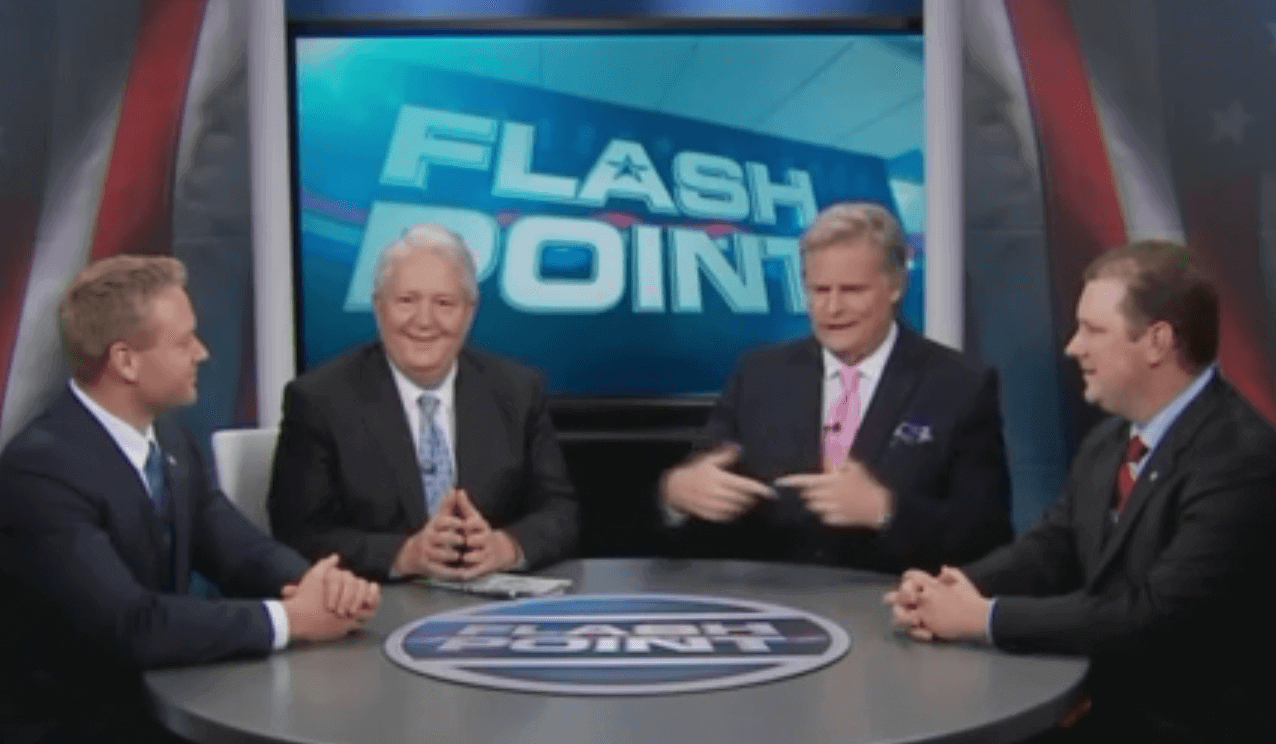
During a budget-briefing breakfast hosted by Oklahoma Policy Institute on April 26, executive director David Blatt drew upon Bob Dylan’s saddest lyrics to warn that the first half of his presentation would be unrelentingly depressing. It included the following facts:
- During the past decade, Oklahoma’s appropriated state budget fell by 15 percent.
- After inflation, the budget has lost nearly $1.2 billion.
- Medicaid has been cut $445 million since 2010
- 7,400 Oklahomans with developmental disabilities are on waiting lists for services.
- Corporate income tax collections have dropped to less than one-fourth of the 2013 level.
- Next year, the state projects a shortfall of $750 million.
Blatt said he tries to avoid the politically dangerous statement that “people will die.” It is now impossible, however, to avoid making such a candid appraisal of the effects of such extreme cuts.
Budget Blueprint offers steps to recovery
Neither the governor nor legislative leaders retain their implausible faith that tax cuts won’t lead to budget cuts. Instead, a bipartisan group of lawmakers now recognize that “irresponsible budget practices are damaging the health and prosperity of our entire state,” as stated in the recently issued Blueprint for a Better Budget.
OkPolicy recently joined a new coalition, Save Our State, which created the Budget Blueprint. The study draws upon Democrats’ and Republicans’ proposals to increase recurring revenue by more than $1 billion. Democrats have already called for the restoration of oil and gas gross production taxes as well as taxes on the wealthy. Monday, Republicans voted to advance a large tax bill that bundles cigarette and fuel tax increases with repeal of certain oil and gas tax exemptions, but leadership will need Democratic support to meet the 76-vote threshold of the House floor. For their votes, Democrats are demanding gross production tax changes.
Of course, such a compromise is needed. But is it realistic?
Fmr. Gov. Walters: Leadership caused crisis
The breakfast discussion on that issue didn’t really start until former Gov. David Walters said he understood why the bipartisan institute labeled Oklahoma’s budget shortfall a “structural deficit.” He still expressed a hard truth: Irresponsible gubernatorial and legislative leadership caused Oklahoma’s revenue crisis. (I don’t know enough to comment on Walters’ call to sell water to Texas, but his concluding plug for NonDoc was appreciated.)
I am not a financial expert, nor do I know enough of the inside politics to offer nuanced opinions on strategy. I stick with the policy issues that I do know (education) and avoid weighing in on whether the legislative “acrimony” is “useless” or not. (Discreetly, I do get a kick out of “odd outbursts and delicious drama” at the Capitol.)
So, I look forward to the conversations that take place in settings like OkPolicy’s Budget Summit Breakfast.
Democrats need to stop cowering
Past discussions didn’t give me much hope, but what I heard at the event April 26 brought to mind the promising interaction that occurred on KFOR’s Flashpoint program the previous Sunday.
In that episode of the local punditry, Rep. Jon Echols (R-OKC) tossed out his party’s upcoming proposals. Meanwhile, Rep. Mickey Dollens (D-OKC) remained smiling yet firm during the on-air bargaining. Sunday’s news event and the conversations after OkPolicy’s breakfast indicated that Democrats no longer fear their shadows.
From what I heard, the Republican legislative leadership (and many newly elected Republican legislators) are ready to move beyond the risky experiments of the last decade. They still have plenty of officeholders who were elected during the fevered overreaction to President Barack Obama’s first term, and many of them hold firm to a budget-cutting ideology divorced from the real world. Extreme Republicans have greatly benefitted from gerrymandering, so they haven’t yet felt the impact of urbanization, which is creating a younger, more diverse electorate. If Democrats gather the nerve to stand their ground, more balanced policies could be adopted.
The real question is whether Democrats will get back in the game and give and take the hits needed to make a comeback. It’s great that the audience for OkPolicy’s research is growing. What matters, however, is whether mainstream Democrats, other moderates and pragmatic conservatives can stop cowering.
Moderate Dems, GOP carry burden of conscience
Democrats and reality-based Republicans face a more complex dilemma than the Tea Party, Libertarians and other extreme conservatives. Too many right-wingers came to office with the goal of shrinking government so much they can drag it to the bathroom and drown it in the bathtub. To them, cutting education more than any other state in the nation is a positive, not a tragedy.
On the other hand, it’s our moderate Democrats and non-ideological Republicans who fret over the human costs of closing hospitals and turning down federal Medicaid funds. For instance, we’re the ones who had to play Hamlet and ask whether we should raise cigarette taxes without getting anything in return in order to avoid an even worse-case scenario last session.
Victory is possible
Republican dominance didn’t emerge overnight. Neither will it be reversed quickly. A last-minute compromise may occur in the next few weeks. Likewise, extreme conservative intransigence might persist through any subsequent special session.
If Democrats and moderates organize and commit to the 2018 and 2020 elections (and fairly redistrict the Legislature), the next generations of Oklahomans could have an equitable future. Victory is possible only when Democrats fight to win instead of merely minimizing their losses.
To paraphrase Bob Dylan and Blatt: There may or may not be a way out of here. Next month or some other time, ideologues might meet Democrats and pragmatists halfway. If not, they must understand that moderates will then meet them, unafraid, on the next political and legal battlegrounds.






















